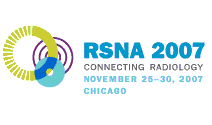
Abstract Archives of the RSNA, 2007
Riccardo Ferrari MD, Presenter: Nothing to Disclose
Franco Iafrate MD, Abstract Co-Author: Nothing to Disclose
Pasquale Paolantonio MD, Abstract Co-Author: Nothing to Disclose
Marco Rengo, Abstract Co-Author: Nothing to Disclose
Carlo Nicola De Cecco MD, Abstract Co-Author: Nothing to Disclose
Andrea Laghi MD, Abstract Co-Author: Research Consultant, E-Z-EM, Inc
Research Consultant, Vital Images, Inc
Research Consultant, General Electric Company
Research Consultant, Viatronix
Research Consultant, Tera Recon
To determine potential advantages of computer-aided diagnosis (CAD) system in the detection of polyps at CT colonography (CTC).
Three readers, with different rate of experience, (ten years experienced radiologist, two years experienced radiologist and a senior radiology resident) independently evaluated 46 CTC examinations retrospectively chosen as a polyp-enriched population from our database (96 polyps and 6 cancers). CTC had been performed using 4-row (Volume zoom, Siemens, Erlanger, Germany ) and 64-row MDCT (VCT, General Electric Healthcare, Milwaukee, USA). Readings were performed using primary 2D approach with and without CAD software (aw 4.4 software. General Electric healthcare) as a concurrent reader.
Same diagnostic sensitivity with and without CAD (96%) was observed for expert radiologist. No statistically significant difference (86% without CAD and 90% with CAD software) was observed for intermediate experience radiologist. Significant improvement of sensitivity (63% for 2D approach, 82% for 2D + CAD) was observed in non expert radiologist. Mean reporting time was 13 min for primary 2D approach and 10 min and 35 sec for 2D + CAD software. CAD revealed 7.3 false positive findings per patient.
The use of CAD software increased sensitivity of CTC to detect colonic polyps only in non expert radiologist. CAD used as a concurrent reader reduces reporting time.
CAD increased sensitivity of CTC to detect colonic polyps only in non expert radiologist and used as a concurrent reader reduces reporting time.
Ferrari, R,
Iafrate, F,
Paolantonio, P,
Rengo, M,
De Cecco, C,
Laghi, A,
Evaluation of Potential Advantages of Computer-aided Diagnosis (CAD) in Reporting CT Colonography with a Primary 2D Approach. Radiological Society of North America 2007 Scientific Assembly and Annual Meeting, November 25 - November 30, 2007 ,Chicago IL.
http://archive.rsna.org/2007/5016694.html

